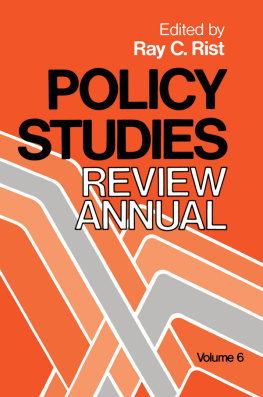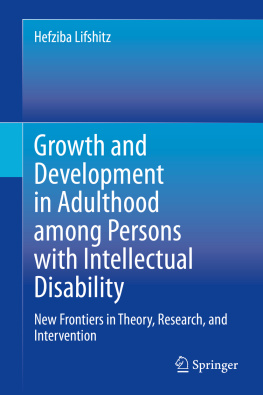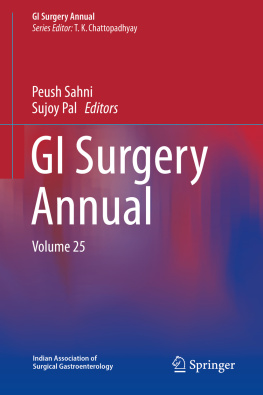
THE JEWISH LAW ANNUAL
VOLUME NINETEEN
Volume 19 of the Jewish Law Annual is a festschrift in honor of Professor Neil S. Hecht. It contains ten articles in English and three in Hebrew. Several articles discuss judicial institutions, among them the decision rulesconduct rules dichotomy, the biblical two witnesses requirement and authorized departures from it, the prosbul, and the doctrine of normative transparency. Two articles discuss legal sources pertaining to the sanctity of life. One focuses on human dignity, the other addresses the imperative of preserving life in the context of terminal illness. Other articles are written from a broad range of perspectives. One is comparative, examining Persian and talmudic law on the status of promises and the role of the divine in their enforcement. Another is a historical survey documenting the composition and communal role of Jerusalems official rabbinical court from 1841 to 1921. A multi-disciplinary article addresses the little-studied issue of shame punishment in Jewish legal culture, adducing historical, literary, and ethnographic sources in addition to responsa and semi-legal documents. And one article has a pedagogic focus, addressing the teaching of Jewish law in contemporary universities, and offering programmatic suggestions. The volume also features several topical articles. One explores tort remedies for negligent misrepresentation by investment advisors. Another considers a suggested direction for resolving the agunah problem, namely, inducing the recalcitrant husband to grant a divorce by awarding his wife compensatory tort damages; it rejects this remedy as infeasible. A third comments on the notion of conversion invoked by a recent English court decision on eligibility for admission to denominational schools, and how it compares to the concept of conversion arising from the biblical story of Ruth.
The Institute for Research in Jewish Law
Faculty of Law, The Hebrew University of Jerusalem
THE JEWISH LAW ANNUAL
VOLUME NINETEEN
In honor of Neil S. Hecht
Edited by
Hanina Ben-Menahem Berachyahu Lifshitz
THE INSTITUTE FOR RESEARCH IN JEWISH LAW
FACULTY OF LAW
THE HEBREW UNIVERSITY OF JERUSALEM
First published 2011
by Routledge
2 Park Square, Milton Park, Abingdon, Oxon OX14 4RN
Simultaneously published in the USA and Canada
by Routledge
711 Third Avenue, New York, NY 10017
Routledge-Cavendish is an imprint of the Taylor & Francis Group, an informa business
2011 Institute for Research in Jewish Law, Hebrew University of Jerusalem
Typeset in Palatino by
RefineCatch Limited, Bungay, Suffolk
Printed and bound in Great Britain by
TJI Digital, Padstow, Cornwall
All rights reserved. No part of this book may be reprinted or reproduced or utilized in any form or by any electronic, mechanical, or other means, now known or hereafter invented, including photocopying and recording, or in any information storage or retrieval system, without permission in writing from the publishers.
British Library Cataloguing in Publication Data
A catalogue record for this book is available from the British Library
Library of Congress Cataloging in Publication Data
A catalog record for this book has been requested
ISSN 01698354
HB ISBN13: 9780415619585
HB ISBN10: 0415619580
eISBN13: 9780203154014
eISBN10: 9780203154010
For Neil Hecht
Man of vision and action
The Jewish Law Annual is published under the auspices of the
Institute for Research in Jewish Law,
Faculty of Law, the Hebrew University of Jerusalem
Editor
BERACHYAHU LIFSHITZ
Executive Board
HANINA BEN-MENAHEM
NEIL S. HECHT
BERACHYAHU LIFSHITZ
Board of Editors
HANINA BEN-MENAHEM, Jerusalem | BERACHYAHU LIFSHITZ, Jerusalem |
DOV FRIMER, Jerusalem | NEIL S. HECHT, Boston |
BERNARD JACKSON, Liverpool | DANIEL SINCLAIR, Jerusalem |
RONALD WARBURG, Teaneck NJ |
Editorial communications should be addressed to Prof. Berachyahu Lifshitz, Institute for Research in Jewish Law, Faculty of Law, The Hebrew University of Jerusalem, Mount Scopus, 91905 Jerusalem, Israel. All communications should be clearly marked Attention: Editor, Jewish Law Annual. Contributors should consult the style sheet that appears at the end of the volume; it is also available from the editor upon request. Submissions are welcome from all. Neither the editor nor members of the Board of Editors are to be associated with the views expressed by contributors.
This book is part of a series. The publisher will accept continuation orders, which may be cancelled at any time, and which provide for automatic billing and shipping of each title in the series upon publication. Please write for details.
CONTENTS
FROM THE EDITORS
The publication of this volume coincides with the transition of the Jewish Law Annuals editorial base to the Institute for Research in Jewish Law at the Hebrew University of Jerusalem. For over twenty-five yearssince 1985the Annual was published by the Institute of Jewish Law at Boston Universitys School of Law, headed by its founder, Professor Neil Hecht. This year Professor Hecht is retiring, after teaching for almost fifty years. The present volume is dedicated to him as a token of our gratitude and appreciation for his monumental contribution to the flourishing of Jewish law scholarship in the United States. Neil Hecht understood that for a discipline to thrive, it must have an intellectual home to provide the infrastructure for the exchange of information and research, and serve both as a meeting place for researchers and an anchor for individual scholars. With this imperative in mind, he founded the Institute of Jewish Law some thirty years ago. From then on, Neil Hecht and the Institute have been initiators of or partners in almost every major endeavor in the field of Jewish law, from preparation of innovative teaching materials and translations to publication of scholarly monographs and anthologies, from assisting young scholars and new programs to organizing and providing financial support for symposia and conferences.
Working with Neil has been an honor and a pleasure. Neil will remain active on the Jewish Law Annuals Editorial Board. We wish him many more years of productivity, learning, and continued sharing of his erudition and expertise.
Hanina Ben-Menahem
Berachyahu Lifshitz
Elisha Ancselovits*
It is often alleged that the prosbul, a document developed by the Tannaim, is a legal fiction. Biblical law cancels all debts every seventh year (Deut. 15:12).1 Many scholars argue that the prosbul was intended to circumvent the biblical prohibition against demanding repayment of such debts.2 The prosbul allegedly transfers debts owing to private creditors to the courts, so that they can continue to collect the debts from borrowers. In this paper, I will argue that the Sages did not view the prosbul as a legal fiction, but viewed the non-cancellation of debts in the Sabbatical year as an adaptation of the original biblical concerns to changed conditions. In their view, during the period when the land of Israel was occupied by the Romans, Jewrys religious leadership openly changed the traditional law (or validated such a change) in order to better realize, in the contemporary reality, the original biblical intent of creating a mutually-supportive society.






